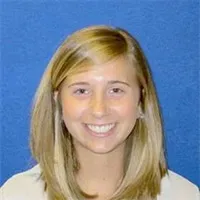Lead as a Scholar and Educator
With an online Doctor of Philosophy in Nursing (PhD in Nursing) from Wilkes University, you will achieve the terminal degree for advanced practice nurses. This online, doctorate-level program is designed to be taken on a part-time basis so you can balance your education with your professional career and personal life.
Our online PhD in Nursing is focused on research and will prepare you for a career in scientific inquiry aimed at developing new knowledge in nursing science. It will empower you for leadership roles and prepare you with the expertise to conduct research that will advance the nursing profession and improve nursing outcomes.
Admission Requirements
Applicants will be evaluated on an individual basis based on the following criteria.
- Master’s degree in nursing (3.0 cumulative GPA) with official transcripts from an institution with programmatic (ACEN, NLNAC, CCNE) and regional accreditation*
- A minimum grade of 3.0 for gap analysis courses only
- A current unencumbered RN license; APRN license if appropriate**
- Current resume or curriculum vitae.
- Letter of intent describing your professional goals, research topic and the reason for pursuing the Ph.D. degree
- Two recommendations from graduate-level nurses or faculty who can attest to your ability to be successful in a Ph.D. program
- Check state authorization
These admissions standards represent the minimum eligibility requirements for programs. Admission committee members reserve the right to request additional information from candidates as needed for a more in-depth review of qualifications.
Transfer Credits: All graduate programs will allow 9 total transfer credits (must be a 3.0 or higher).
* Students who graduated from a non-programmatically accredited institution and meet all other admission requirements will be evaluated on a case-by-case basis. Admission is not guaranteed.
**Applications presenting a history of disciplinary action on professional licenses will be subject to an additional review process by the Special Licensure Discrepancy Committee of the University.
* The baccalaureate degree in nursing/master's degree in nursing/ Doctor of Nursing Practice and post graduate APRN certificate programs at Wilkes University are accredited by the Commission on Collegiate Nursing Education (www.ccneaccreditation.org)
PhD Program Learning Outcomes
Graduates will be able to:
- Synthesize empirical and theoretical literature from nursing and other disciplines regarding nursing education and clinical practice.
- Design a nursing research study that examines, refines, and advances nursing science and theory to transform nursing education and clinical practice.
- Critically evaluate research findings as applicable to nursing science.
- Contribute to the field of nursing science through the dissemination of research findings.
What Will you Learn in the PhD Program?
Build critical knowledge as it relates to nursing theory, healthcare issues, nursing education and obtaining research funding:
- Explore scientific philosophies and ethical theories as they pertain to the nursing profession.
- Analyze the concepts of evidence-based research on policy and politics that impact population health outcomes.
- Consider specific issues in science and ethics as they relate to nursing education.
- Learn about the current state of scientific research and major funding trends in nursing and healthcare.
Advance your research skills in qualitative and quantitative analysis while expanding on study design:
- Learn the seven steps of the research process, focusing on the development of researchable problems, literature review, and hypothesis generation.
- Develop the skills to write quantitative research questions and how to select appropriate research methodologies.
- Explore ways to apply qualitative inquiry as an approach to knowledge discovery.
- Understand principles of measurement, instrument design and data collection methods.
Develop a comprehensive dissertation with the support of a dedicated chairperson:
- Receive early engagement with a chairperson, providing structured guidance from start to finish, including dissertation research.
- Formulate a dissertation that answers a pertinent research question and contributes to the body of knowledge in nursing.
- Develop a literature review and mode of inquiry for your dissertation as you prepare to defend your proposal.
- Implement your study through data collection and analyze the results in preparation for your dissertation defense.
Curriculum
To see the full program curriculum, access your free program guide.
Time to Complete
3 years (on average — depending on dissertation)
Courses
17 Courses (9 terms)
Course Lengths
12 weeks
This seminar is online and focuses on the dissertation process and student orientation to the university and PhD program.
Course Prerequisites: Doctoral Standing
Credits: 1
The focus of this course is to prepare doctoral students to examine the development and organization of nursing knowledge. Philosophies of science, epistemologies and their influence on knowledge development in the discipline of nursing, and strategies for theory development and analysis are explored.
Credits: 3
This course acquaints students with philosophical issues and nursing theories relevant to nursing education. An overview of central metaphysical, epistemological, and ethical system, considering specific issues in the philosophies of science and ethics that are of particular focus in nursing education.
Credits: 3
The nurse researcher contributes towards the development of healthcare policy and politics in local, state, national, and global healthcare markets. Application and analysis of evidence-based research on policy and politics will impact population health outcomes and the future of nursing education, research, and practice.
Credits: 3
The nurse researcher contributes towards the development of healthcare policy and politics in local, state, national, and global healthcare markets. Application and analysis of evidence-based research on policy and politics will impact population health outcomes and the future of nursing education, research, and practice.
Credits: 3
This course introduces students to the seven steps of the research process, focusing on the development of researchable problems, literature review, and hypothesis/question generation within the context of quantitative and qualitative research designs and methods.
Credits: 3
This course builds on the knowledge of philosophy, theory, and research process. The student, in consultation with his/her chairperson, begins the dissertation process.
Credits: 3
This course applies knowledge of statistical methods used in nursing research. Topics include parametric and non-parametric methods of data analysis and model building. Alternate approaches to analysis of data are considered.
Credits: 3
This course explores the current state of nursing research and the major research and funding trends in nursing and health care. Students will be engaged in preparing a fundable grant application for dissertation study and strategies used to publish research funding.
Credits: 3
This course focuses on research methodologies that guide the design of studies, which collect and analyze quantitative data. The focus will be on writing quantitative research questions and selecting appropriate research methodologies. Focus is placed on descriptive, correlational, experimental and quasiexperimental designs as applied to nursing problems.
Course Prerequisites: NSG 619, 621
Credits: 3
The focus of this course is on qualitative inquiry as an approach to the discovery of knowledge in the science of nursing. This course will focus on the scientific underpinnings, methodologies, and data analysis techniques in qualitative research for advancing nursing knowledge.
Course Prerequisites: NSG 619
Credits: 3
This course builds on the understanding of quantitative designs in nursing and health related topics. The course provides the opportunity for applied practice in quantitative methods using common statistical tests and SPSS.
Course Prerequisites: NSG 623
Credits: 3
This course provides an overview of principles of measurement, instrument design, and data collection methods. Methods to critically evaluate and select theoretically congruent instruments are explored.
Course Prerequisites: NSG 621
Credits: 3
The student, in consultation with his/her chairperson, writes chapters II and III of the dissertation proposal.
Course Prerequisites: NSG 615, 616, 617, 618, 619, 620, 621, 622, 623, 624, 625, 626
Credits: 3
The comprehensive written examination is a series of questions that focus on the synthesis and integration of knowledge learned during doctoral coursework. Students demonstrate their ability and preparedness to move forward in the doctoral research program.
Course Prerequisites: NSG 627 and authorization from the PhD Program Coordinator to register for comprehensive examination
Credits: 1
This course focuses on completion of the first three chapters of the dissertation and submission of the proposal to the IRB committee(s) for approval. Students will then undertake proposal defense before continuing into dissertation implementation.
Course Prerequisites: NSG 628
Credits: 3
This course focuses on implementation of the student’s doctoral research study. After completion of the first three chapters, successful proposal defense, and IRB approval, the student, under guidance from their chair, begins the data collection process.
Course Prerequisites: NSG 629
Credits: 3
This course continues with the implementation of the dissertation. Students complete data collection and analysis thus, finalizing chapters 4 and 5 and satisfying final defense.
Course Prerequisites: NSG 630
Credits: 3
Get More Program Details
- Applications are currently being accepted for next intake
PhD Faculty Research Areas
- Nursing administration
- Leadership skills relating to emotional intelligence/competency
- Quality improvement
- Risk Management and Patient Safety
- Cultural competency
- Advanced practice
- Maternal-child health
- Clinical practice paradigms
- Nurse competency
- Theory-guided practice
- Complex Healthcare Systems
- Diabetes and health care outcomes
- Pain management
- Congestive heart failure
- Depression
- Infection prevention
- Cancer survivorship
- Patient self-management
- PTSD in veterans
- Disparities in women’s health
- Patient advocacy
- Healthcare Policy
- Social Discriminants of Health
- Teaching/leading models and strategies
- Innovation and technology in teaching
- Educational practice gaps and assessment of learning needs
- Interprofessional collaboration
- Simulation
- Minority students
Compare PhD and DNP Programs
| Compare Programs | PhD In Nursing (Research Focused) |
Doctor of Nursing Practice (Practice Focused) |
|---|---|---|
| Program Objectives | Prepare nurses at the highest level of nursing science to conduct research to advance the science of nursing | Prepare nurse leaders at the highest level of nursing practice to improve patient outcomes |
| Students |
|
|
| Learned Outcomes |
|
|
| Resources |
|
|
| Program Objectives and Evaluation |
|
|
|
Employment Outcomes |
|
|
Read More About Wilkes Online PhD Program

Is a PhD in Nursing Right for You?
Each year, 4,000 to 5,000 nurses enroll in online PhD in Nursing programs at schools like Wilkes University. Read More
FAQs
Admissions
Information can be found on our Get Started page, and by completing the form at the top of the page. Or, you can contact an enrollment advisor by emailing us at admissions@onlinenursingdegrees.wilkes.edu, calling us at 888-413-5633 , or scheduling a time to chat.
No, there are no GRE or GMAT requirements to enroll.
Yes, they're accredited by the Commission on Collegiate Nursing Education (CCNE)*.
*The baccalaureate degree in nursing/master’s degree in nursing/doctor of nursing practice, and post-graduate APRN certificate programs at Wilkes University are accredited by the Commission on Collegiate Nursing Education (www.ccneaccreditation.org).
Note: The length of time listed is based on the total amount of required courses for each program. An analysis of previous coursework may shorten total length of time to complete.
Course length is 15 weeks, and the PhD in Nursing takes 17 courses / 9 terms/ 3 years (on average — depending on dissertation)
Financial Aid
Yes, financial aid is available to qualifying nursing students. Please fill out a form or schedule an appointment with an Enrollment advisor to learn if you qualify for financial assistance. You can also give us a call at 888-413-5633 . We're happy to help!
Tuition
Note: Tuition listed is based on the number of required courses for each program. An analysis of previous coursework may allow for fewer courses and a lower net cost, when applicable. A review of official transcripts will determine a student’s course of study.
Tuition totals presented are maximum amount.
Tuition: $51,935
Other
Yes. They’re accredited by the CCNE*.
*The baccalaureate degree in nursing/master’s degree in nursing/doctor of nursing practice, and post-graduate APRN certificate programs at Wilkes University are accredited by the Commission on Collegiate Nursing Education (www.ccneaccreditation.org).
All coursework is 100% online. Each course experience is primarily asynchronous.
Media
- Image
![Sharon M. Mills Wisneski]()
Sharon Mills-Wisneski
Congratulations to Sharon Mills-Wisneski, one of our online PhD faculty members, who has been recognized for her extraordinary nursing accomplishments by the Delaware Nurses Association
Cavill, R., & Dittman, P. (2022).
Conceptual model for interhospital transferred patients: Caring and quality outcomes. International Journal for Human Caring, 27(1).
Adams Traister, T.A. (2023).
Virtual reality simulation's influence on nursing student's anxiety and communication skills with anxious patients: A pilot study, Clinical Simulation in Nursing, 82.












